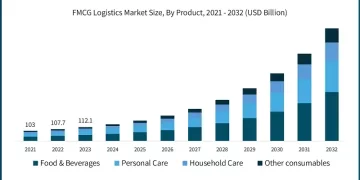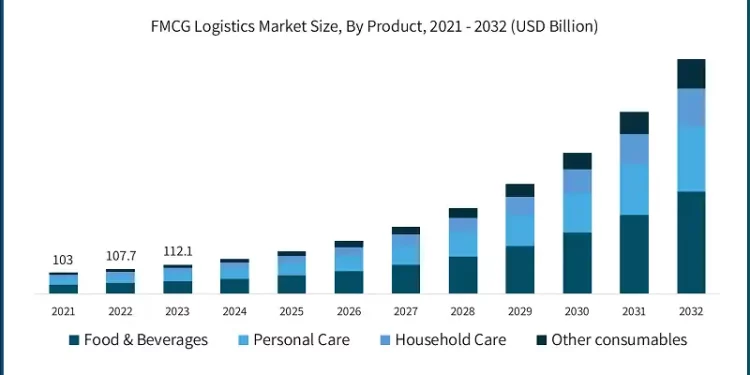The global FMCG (Fast-Moving Consumer Goods) logistics market has reached a milestone valuation of $164 billion in 2023, underscoring its critical role in modern supply chains. This growth is fueled by shifting consumer behaviors, a booming e-commerce sector, and rapid technological advancements.
Why FMCG Logistics Matters
FMCG products, including food, beverages, and personal care items, are essential, high-demand goods with fast turnover rates. Ensuring these products are available and delivered on time requires a robust and efficient logistics network. Companies must manage the delicate balance of maintaining speed and quality while optimizing costs.
What’s Driving the Market?
- E-commerce Expansion: The rise of online shopping platforms has heightened the need for faster and more flexible delivery systems. FMCG companies are investing heavily in last-mile delivery solutions and regional warehousing.
- Technological Disruption: Innovations such as artificial intelligence, IoT-enabled tracking, and automation are streamlining inventory management and reducing delays. These technologies improve operational efficiency and enhance customer satisfaction.
- Sustainability Trends: With increasing environmental awareness, FMCG companies are integrating green logistics practices, such as electric delivery vehicles and biodegradable packaging, to reduce carbon footprints and appeal to eco-conscious consumers.
Challenges to Overcome
Despite its growth, the FMCG logistics sector faces several hurdles:
- Rising Costs: Inflation and fluctuating fuel prices have added pressure to operating margins.
- Supply Chain Vulnerabilities: Global disruptions, including the pandemic, have exposed inefficiencies in sourcing and transportation networks.
- Eco-Friendly Adaptations: Transitioning to sustainable logistics while maintaining cost-effectiveness requires careful planning and significant investment.
The Road Ahead
Looking forward, the FMCG logistics market is projected to grow steadily. The Asia-Pacific region is expected to lead this expansion, driven by urbanization, rising incomes, and a growing consumer base. Companies that leverage cutting-edge technologies, prioritize sustainability, and build resilient supply chains will gain a competitive edge.
The future of FMCG logistics lies in agility, intelligence, and eco-conscious innovation, ensuring businesses can adapt to evolving market demands while maintaining profitability.
For more updates and industry insights, follow us at The Logistic News.























